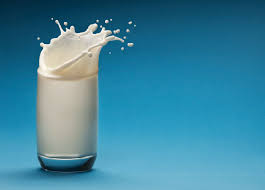21 august 2024 : In a region renowned for its milk production, the Punjab Food and Drugs Administration reported that 13.6 percent of loose milk samples and 21.4 percent of desi ghee samples did not meet food safety standards during the 2023-24 period.
According to data , all samples of packaged milk passed quality tests, while 88 out of 646 loose milk samples collected in the same timeframe failed to comply with safety regulations. Additionally, 26 percent of khoya samples, commonly used in sweets, did not meet quality standards. Over the past three years, from 2021 to 2024, out of 20,988 milk samples collected throughout Punjab, 3,712 were found to be non-compliant with established standards.
Regular sampling of milk and its derivatives is conducted, and frequent consultations with food business operators are held to gather insights on product quality. During a recent meeting, these operators reported that packaged milk is of superior quality. The primary concern regarding adulteration and substandard products pertains to desi ghee. “Whenever we receive information regarding malpractices, we promptly initiate search and seizure operations,” stated Abhinav Trikha, Commissioner of the Food and Drug Administration in Punjab. It has been reported that between 2021 and 2024, the state government has initiated 3,200 civil and over 300 criminal cases against individuals involved in adulteration.
Daljit Singh Sadarpura, president of the Progressive Dairy Farmers Association, refutes claims that commercial dairy farmers engage in such practices. “In reality, the approximately 10,000 commercial dairy farmers employ advanced technology for milk processing, minimizing human intervention. However, we cannot guarantee the quality of loose milk supplied by local milkmen. We urge consumers to choose only packaged milk and its products for their safety,” he emphasized. Among the loose milk samples that failed quality tests, instances of water adulteration, reconstitution with expired skimmed milk powder, and contamination with substances such as urea, formalin, or starch were identified.
An official source has indicated that maltodextrin, along with tallow oil and other hydrogenated fats, has been identified as an adulterant in milk and desi ghee. Frequently, less expensive ghee, often sold as puja ghee, is mixed with hydrogenated fats and refined oils, containing only 5-10 percent of genuine desi ghee. During a raid conducted at a ghee factory in Bathinda a few years ago, Health Department search teams reportedly discovered a chemical used to replicate the aroma of desi ghee in the fats produced, which were then marketed under the names of well-known ghee brands.
KS Pannu, a former Commissioner of the FDA who initiated a campaign against the adulteration of milk and its derivatives, asserts that the issue can only be effectively addressed if the government engages dairy farmers, food operators, retailers, and consumers in the detection process, followed by stringent actions against those perpetrating adulteration.
Officials have also raised concerns about adulterated and substandard paneer being imported into the state from other regions. They note that identifying adulterated paneer can be challenging, but consumers are advised to compare prices as a precautionary measure.

